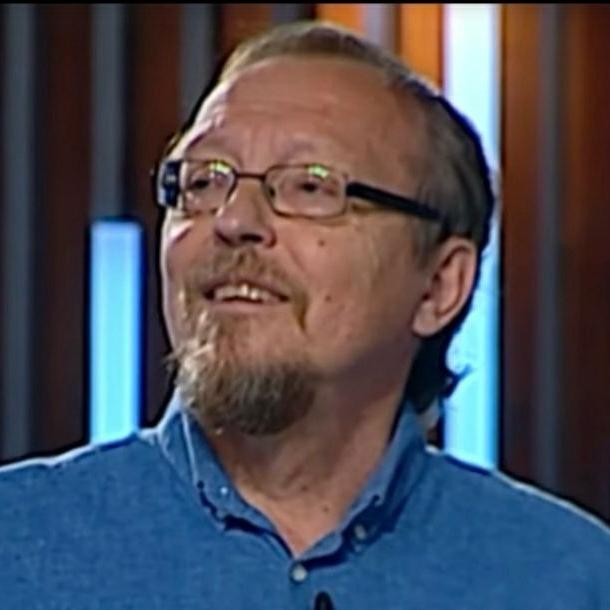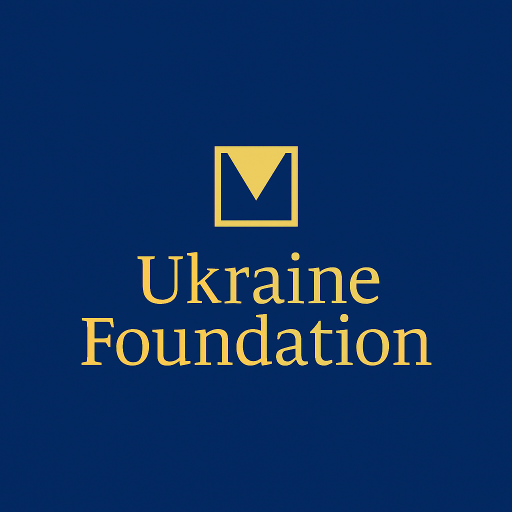Ukraine Foundation
Inspiring Change, Driving Impact
Professor Valentin M. Yakushik is a distinguished political scientist, legal theorist, and peacebuilding advisor based in Kyiv and Geneva.

He currently serves as Executive-in-Residence Fellow at the Geneva Centre for Security Policy (GCSP) in Switzerland and as a Professor at the European Center for Peace and Development (ECPD) of the UN University for Peace in Belgrade, Serbia. His most recent academic engagement includes a visiting professorship at Lanzhou University in China, following his tenure as Professor at the National University of Life and Environmental Sciences of Ukraine. He previously held senior research and academic roles such as Deputy Director and Senior Research Fellow at the Institute of European Studies, National Academy of Sciences of Ukraine, and Visiting Professor at the East London Business School in the UK, Tsuda College in Japan, and the University of Tokyo. Prof. Yakushik also held long-standing positions in Ukraine, notably as Professor of Political Science at the National University of “Kyiv-Mohyla Academy”, and as a Professor of Law at Taras Shevchenko National University of Kyiv.
His research spans the theory of the transitional state, comparative political and legal systems, public law and governance reform, national reconciliation, and strategic narratives in intercultural contexts. A respected public intellectual, Prof. Yakushik has advised parliamentary committees in Ukraine, served on the Presidential Public Humanities Council, and participated in the Civic Council of the Ministry of Foreign Affairs. He was also a member of the Balkans Reconciliation Study Group at ECPD. His insights are frequently featured in international media, including Al Jazeera, Sky News Arabia, Alghad TV, and major networks across India, China, and Vietnam.
Professor Yakushik is the author or co-author of over a dozen books, including An Introduction to Political Science (2012), The State of a Transitional Type (1991), and Social Reformism in the Contemporary World (1990). He has also contributed to significant edited volumes such as The Viral Blow of COVID-19 (2021), The Cost of Reforms (2019), and The Caspian Basin Oil and Its Impact on Eurasian Power Games (1998). His work reflects a sustained engagement with democratic transformation and post-Soviet transitions. He currently serves as Editor-in-Chief of Ukrainian Policymaker and sits on the editorial boards of academic journals in Thailand and Armenia.
He holds a Doctor of Sciences (Habilitation) in Political Science from the Institute of State and Law, Academy of Sciences of Ukraine, a Ph.D. in Law from Kyiv State University, and an LL.M. in International Law with Honours, along with an Interpreter’s Diploma in English and Portuguese, from the same university.
Professor Yakushik is fluent in Russian, Ukrainian, and English, and has intermediate proficiency in Spanish and Portuguese.
Princeton University & Modern War Institute At West Point: Dr. Mariya Heletiy Publishes “The Balkans Model and Conditions for Peace in Ukraine” In the Irregular Warfare Initiative
We are proud to share the latest contribution from Dr. Mariya Heletyi, whose new article has been published by the Irregular Warfare Initiative, a joint project of Princeton University’s Empirical Studies of Conflict and the Modern War Institute at West Point.

In “The Balkans Model and Conditions for Peace in Ukraine,” Dr. Heletiy draws on the experience of the Balkan conflicts to analyze the irregular warfare nature of Russia’s invasion of Ukraine and what it means for peace-building. Her analysis offers a sobering but necessary perspective: that peace in Ukraine cannot be built on traditional negotiations alone.
Using the backdrop of Russia’s repeated violations of ceasefire agreements -most recently its broken “Easter truce”- Dr. Heletiy argues that today’s hybrid conflicts require more than diplomatic handshakes. The war in Ukraine spans far beyond the battlefield, touching diplomatic, informational, economic, humanitarian, and military fronts. As she points out, ceasefires in irregular conflicts often serve less as a path to peace and more as a pause for regrouping and rearming.
Drawing lessons from the Balkans, Dr. Heletiy proposes that irregular warfare tools -such as economic pressure, information campaigns, and unconventional tactics- must be part of any comprehensive strategy for sustainable peace. Her article warns against the false comfort of conventional approaches that do not account for the ideological drivers, asymmetries, and non-state actors that continue to shape today’s conflicts.
We encourage everyone interested in peace and security in Ukraine and beyond to read Dr. Heletiy’s full piece, which brings deep insight and strategic clarity to one of the most pressing issues of our time.
Washington: Check out the latest media appearances of Ukraine Foundation’s International Advisory Board Member John Pennell
John Pennell on Russia’s Actions in Ukraine and Syria in The Cognitive Crucible by the Information Professionals Association – September 16, 2025
In the episode, Dr. John Pennell explores how Russia’s use of irregular warfare and information operations has evolved across Ukraine and Syria from 2014 to 2022, arguing that Russia has increasingly blended kinetic, cyber, influence, and hybrid tactics to shape outcomes. He discusses how the information environment has become a key domain in contemporary conflict, emphasizes the growing role of non-state actors (like criminal syndicates) in amplifying Russia’s messaging, and calls for better public literacy about information threats, more research into how adversaries adapt their strategies, and more integration between scholars, policymakers and practitioners in responding to this more complex character of war.
John Pennell on “Did Syria Prepare Russia for Hybrid Warfare in Ukraine?” in At the Boundary by the Global and National Security Institute of the University of South Florida – August 11, 2025
In the “Did Syria Prepare Russia for Hybrid Warfare in Ukraine?” episode of At the Boundary, Dr. John Pennell discusses how Russia leveraged its 2015 intervention in Syria as a proving ground for techniques later applied in Ukraine. He argues that operations in Syria allowed Moscow to test tools like drones, electronic warfare, information campaigns, and proxy forces under real combat conditions. Dr. John Pennell traces how Russia adapted those hybrid warfare methods—initially developed in the Syrian context—to the conflict in Ukraine, especially in its early phases (Crimea, Donbas), emphasizing plausible deniability, disinformation, and local proxies. He also highlights the importance of understanding this operational lineage for NATO, the U.S., and partners as they seek to counter Russia’s evolving toolkit.
TVP World, UATV, National Public Broadcasting Suspline, Freedom TV, Kyiv24 News: Watch Dr. Mariya Heletiy’s latest media appearances
FAQs
What is the focus of Ukraine Foundation’s work?
Ukraine Foundation is an independent, mission-driven research and impact organization dedicated to advancing peace, resilience, and innovation in Ukraine. Our work combines rigorous policy research with practical initiatives that strengthen Ukraine’s international partnerships, support innovation and technology, and promote cultural resilience amid the ongoing war.
How does the Foundation turn research into impact?
We believe research should lead to real-world change. Our policy programs —Ukraine in Europe, China in Ukraine, and Ukraine in the Global South— produce insights that shape international dialogue and policy. At the same time, our impact initiatives foster cooperation between governments, businesses, academia, and civil society, ensuring that ideas translate into action for Ukraine’s security, prosperity, and influence.
How can individuals and organizations engage with the Foundation?
Engagement is central to our mission. Partners, experts, and supporters can collaborate through joint research projects, public events, and strategic initiatives in innovation and culture. We also welcome contributions to our programs that amplify Ukraine’s voice globally and strengthen its resilience at home.
How can I support Ukraine Foundation?
You can support our mission by contributing financially, partnering on research or impact projects, or amplifying our work through your professional networks. Every contribution -whether funding, expertise, or visibility- helps us strengthen Ukraine’s resilience and global partnerships.
Does Ukraine Foundation accept volunteers or research fellows?
Yes. We welcome dedicated professionals, researchers, and students who want to contribute to our policy and impact agenda. Opportunities range from short-term projects and fellowships to longer-term engagement with our programs and initiatives.
How can organizations collaborate with the Foundation?
We actively partner with think tanks, universities, governments, businesses, and NGOs to co-develop research, host events, and implement projects that drive meaningful change. Organizations interested in collaboration can reach out to us directly to explore tailored partnerships.
